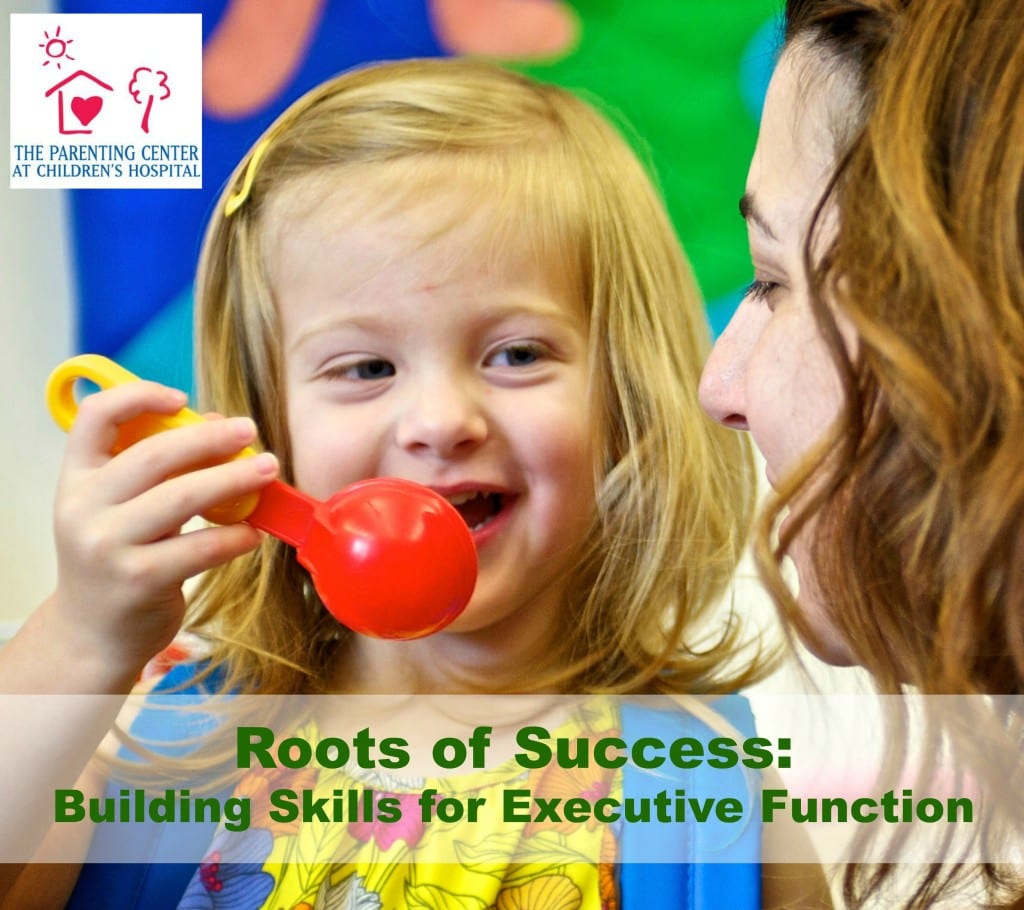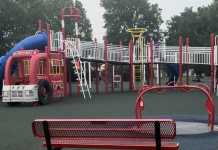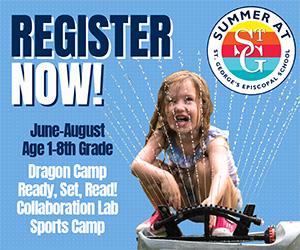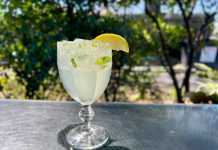Disclosure :: this post is sponsored by The Parenting Center.
Roots of Success: Building Skills for Executive Function
Over 25 years ago, Robert Fulghum wrote a poem, Everything I Need to Know, I Learned in Kindergarten. I’m sure you’ve seen it, a reference and appreciation for simpler times, personal kindness and the importance of friendships. It’s a lovely sentiment and is supported by a 20-year research study which found that kindergartners who have strong social and emotional skills (like the ones in the poem) are more likely to succeed academically and professionally.
Social and emotional competence involves more than making friends. These “executive functions” of the brain include the skills necessary to manage and focus attention, emotions and behavior to reach a goal. They develop as the brain grows and changes through life experiences. Executive skills help children learn to regulate emotions, consider consequences, plan actions, follow directions, solve problems and make good decisions. Researchers at Penn State found that early social competence appears to be more important than IQ for school success and eventually in the labor force.
So what skills are we talking about, why are they critical to healthy development, and most important – how do parents provide experiences so their children learn them? The function of intelligence and emotion are interconnected: thinking affects emotions, emotions affect thinking and both influence how we react or respond!
Here are just a few of the skills:
Self Control
What is it?
- Being able to control my impulses and my body
- Can be positively affected by parenting styles
- Limited and inconsistent in the early years
- For an entertaining illustration of developing self-control in four-year-olds, watch this reenactment of the Marshmallow Test
How can I help my child?
- Talk about what you can do when waiting
- Validate how it feels to wait
- Make sure your child gets plenty of physical activity
- Use timers to give them something to hold while waiting
- Play games: freeze dancing (2 yrs. and up) or Red Light/Green Light (4 years and up)
Cognitive Flexibility and Working Memory
What is it?
- The capacity to easily switch between different ways of thinking and to hold and work with multiple pieces of information simultaneously
- Being able to look at a situation from different viewpoints
- Enhances problem solving
How can I help my child?
- Play matching games and puzzles
- Encourage dramatic play and provide props to act out scenes or play dress up
- Hide toys and look for them
- Change the rules in familiar games (add an additional requirement to do what Simon Says – the leader has to be sticking out his tongue AND say Simon Says)
Focused Attention
What is it?
- Being able to tune out distractions, control attention, emotions and behavior to achieve a goal
How can I help my child?
- Minimize distractions
- Limit screen time
- Tell stories and read book
- Ask questions about a story: Where is the gorilla going? Why was Max causing trouble?
Planning and Problem Solving
What is it?
- Being able to
- Sequence events
- Plan play activities and projects
- Get things done in an organized way
How can I help my child?
- Ask questions that focus on what comes next
- Encourage self-talk while modeling: “Let’s get out all the ingredients we need before we start the cookies.”
- Teach the order of things by asking questions: “Do you put on shoes or socks first?”
- Ask questions that promote foresight: “What do you need for your art project?”
- Inject a new element into play: “Can you put lids on the stacking bowls and make some drums?”
Giving your children the skills to be successful in life, starts long before Kindergarten. If we have these skills, we’ve got a head start on life! As Robert Fulghum wrote,
Put things back where you found them.
Clean up your mess.
Don’t take things that aren’t yours.
When you go out into the world,
Watch out for traffic,
Hold hands and stick together.
About Barbara LeBlanc
 Barbara LeBlanc has been the Director of The Parenting Center at Children’s Hospital since 2005, having served as the Assistant Director since 1988. She is a Licensed Clinical Social Worker. Barbara was the inaugural chair and currently serves on the Guidance Team of the Louisiana Parenting Education Network and is the Past Chair of the National Parenting Education Network. In addition to her professional experience in parenting education, she is the mother of three adult children and a grandmother of three.
Barbara LeBlanc has been the Director of The Parenting Center at Children’s Hospital since 2005, having served as the Assistant Director since 1988. She is a Licensed Clinical Social Worker. Barbara was the inaugural chair and currently serves on the Guidance Team of the Louisiana Parenting Education Network and is the Past Chair of the National Parenting Education Network. In addition to her professional experience in parenting education, she is the mother of three adult children and a grandmother of three.















